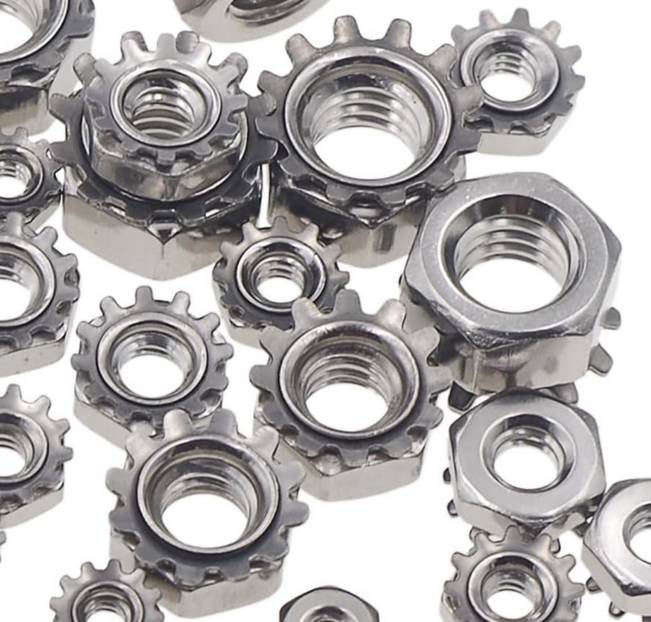TIL about kep (AKA k-lock) nuts that combine nuts and tooth lock washers.
-
TIL about kep (AKA k-lock) nuts that combine nuts and tooth lock washers. Tooth lock washers dig into sheet metal in order to prevent loosening by vibration.
-
 undefined rag. Gustavino Bevilacqua ha condiviso questa discussione
undefined rag. Gustavino Bevilacqua ha condiviso questa discussione
-
TIL about kep (AKA k-lock) nuts that combine nuts and tooth lock washers. Tooth lock washers dig into sheet metal in order to prevent loosening by vibration.
A cool solution.
-
TIL about kep (AKA k-lock) nuts that combine nuts and tooth lock washers. Tooth lock washers dig into sheet metal in order to prevent loosening by vibration.
@trevorflowers Like “sealed” bearings, “lock” washers are one of the biggest lies of industry.
-
@trevorflowers Like “sealed” bearings, “lock” washers are one of the biggest lies of industry.
@chrishuck I don't know. When I use a torque wrench set to manufacturer's recommendation, I've had good luck. But, maybe it's luck?
-
@chrishuck I don't know. When I use a torque wrench set to manufacturer's recommendation, I've had good luck. But, maybe it's luck?
@trevorflowers I’m thinking it has more to do with the proper torque value than the washer. One thing you don’t see on bolting of pressure vessel flanges is lock washers. They are very specific about torquing those, which is why they don’t come loose.
-
@trevorflowers I’m thinking it has more to do with the proper torque value than the washer. One thing you don’t see on bolting of pressure vessel flanges is lock washers. They are very specific about torquing those, which is why they don’t come loose.
@chrishuck TIL
-
@trevorflowers We have a whole business unit in our company that does engineered bolting. They torque flange bolts in chemical plants and refineries, where it *really* matters that things don’t come loose. When you see how much things move around and vibrate in operation in these plants, it’s pretty important that they don’t come loose lol
-
@trevorflowers We have a whole business unit in our company that does engineered bolting. They torque flange bolts in chemical plants and refineries, where it *really* matters that things don’t come loose. When you see how much things move around and vibrate in operation in these plants, it’s pretty important that they don’t come loose lol
@chrishuck Wow! I can imagine that everyone involved deeply cares that those bolts don't vibrate loose. Adventure vans aren't exactly sitting still but probably not in the same league.
My naive thought is that the toothed lock washers dig into the sheet metal which I would expect to help prevent vibration loosening. But, IANAE and am certainly open to informed corrections. It sounds like I've lucked out so far thanks to proper tightening. -
@chrishuck Wow! I can imagine that everyone involved deeply cares that those bolts don't vibrate loose. Adventure vans aren't exactly sitting still but probably not in the same league.
My naive thought is that the toothed lock washers dig into the sheet metal which I would expect to help prevent vibration loosening. But, IANAE and am certainly open to informed corrections. It sounds like I've lucked out so far thanks to proper tightening.@trevorflowers @chrishuck In aviation, safety-critical nuts and bolts are typically safety-wired or use cotter pins, with castellated nuts and/or drilled/safety bolts. There are often dissimilar metals in use with different rates of expansion, which I understand makes torque unreliable (I expect this is a substantial difference with the chemical plants).
Pairs of nuts or bolt heads are often safety-wired together with tight-wise winding (wrapped clockwise for right-handed threads) so that they protect each other from unwinding.
For cotter pins to lock nuts in place, bolts will have a hole (or, I think, sometimes a slot) for the cotter pin to go through a castellated nut and lock it in place.
-
 undefined Oblomov ha condiviso questa discussione
undefined Oblomov ha condiviso questa discussione
